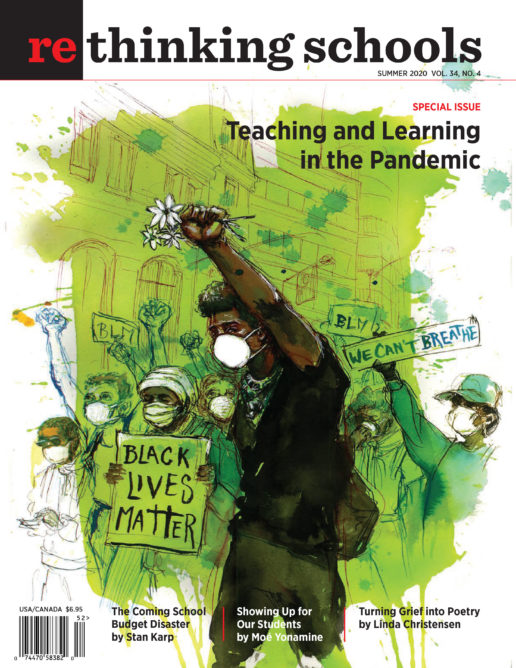The Last Time
Illustrator: Olivia Wise

I went swimming for the last time last summer in late August. I had a tattoo planned for the next weekend, which would mean a few weeks of no swimming — by which point we’d be well into fall and too cold to swim.
My friend Ed sat on the beach and watched me, came in the water a little, but wasn’t much for swimming himself. I glided through the cool water, and as the sun sank down, painting the surface of the water in pinks and golds and slate blues, I stayed in. I stayed as the other swimmers became silhouettes, as the air became cold, knowing that the longer I stayed in, the harder it would be to come out.
“Come on, get out of the water so you can dry off!” Ed yelled.
“But it’s my last time swimming this summer!” I called back. When I finally got out, and sat shivering on my camping chair, wrapping my towel around me, I asked, “Do you think it’s better to know you’re doing something for the last time or to not know?”
“It’s better not to know, because then you can enjoy it more,” he said. “You’re not overthinking it.”
“Yeah, but then you can’t make sure you’re remembering all of it,” I said. I was thinking about the man who had recently, suddenly broken my heart, dumping me over text message. I hadn’t known the last time I’d seen him that it would be the last time. Our last date had been so mundane, and now I’d never see him again. It made me sad.
I’m a teacher in Oregon and on Thursday, March 12, I didn’t know it was the last time I’d see my 8th-grade math students. That night the governor announced that schools would be closed until April 1, then April 28, then for the rest of the academic year. My 8th-grade math students had my class only every other day, so I didn’t see them on the last day of school on Friday, March 13. We were so casual about it — them rushing out the door as the bell rang, me sighing and picking up pencils and scraps of paper, closing the windows, erasing the whiteboard like it was a regular day. We won’t return to school this year, and they’ll go to high school next year, and it is piercingly painful that I don’t get to really say goodbye.
The last time I went out to eat was on March 6, but I didn’t know it would be the last time for a long time. I wish I had ordered another glass of wine. I wish I had gotten dessert.
When my friend Kevin came over to eat pizza and watch a scary movie on Friday, March 13, I didn’t know that would be the last time for a long time that I’d have a guest in my house — I wish I had hugged him longer.
Now every day I keep thinking about what are the last moments I’m experiencing now that I don’t realize are last times. Did I already have my last time walking outside without a face mask? Did I have my last time going to get takeout? Did I have my last phone conversation with my grandmother?
As we continue in the age of pandemic, as time becomes slow and I don’t always remember what day it is, I try to savor experiences, because I don’t know what’s coming next. But I also don’t want to lose sight of what’s in front of me by trying to hold on so tight.
Now every day I keep thinking about what are the last moments I’m experiencing now that I don’t realize are last times.
I don’t know what to tell my students as we learn from a distance. Their fears and sadness trickle in through the assignments in my Google Classroom and the weekly check-ins we do, though only a handful have completed them so far. They write that they feel lost and share that they don’t know how to move forward, and I want to tell them this won’t last forever. Things will change and someday this pandemic will be over.
But when we emerge, we will still have lost so much — 8th-grade graduations and celebrations, months of learning, relationship and connection, rites of passage and rituals of ends and beginnings, and so many more things that I can’t even imagine yet. Maybe we’ll figure out a way to honor the end of the school year digitally, but it won’t be the same. They won’t get their 8th-grade year back. All their yearbooks will be unmarked, pristine, and unsigned.
It’s hard to lose so much so fast. I still don’t know if it’s better to know if I’m losing something or not — I think it’s hard both ways.
Subscribe to Rethinking Schools magazine at rethinkingschools.org/subscribe.

